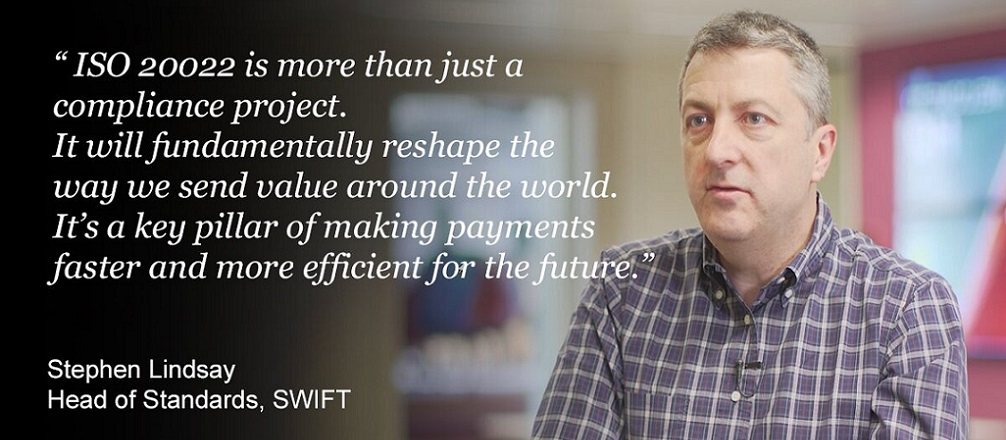
The publication of first specifications marks an important milestone in the transformation of correspondent banking. ISO 20022 will support new emerging services such as APIs, and provide quality data for machine learning and artificial intelligence, enabling innovative new client service propositions.
„ISO 20022 provides an unprecedented opportunity for the global financial community to transform international payments. The rich, structured data enabled by ISO 20022 from end to end will drive the next stage of correspondent banking transformation with improved speed, efficiency, and compliance.”, according to a press release.
„With Payment Market Infrastructures of all major currencies either live, or in the process of adopting ISO 20022, the SWIFT community decided it is now time to adopt this financial standard to further enable the modernisation of cross-border payments.”, the company said.
Over the past six months, the Cross-Border Payments and Reporting Plus (CBPR+) working group, an expert working group overseen by the Payments Market Practice Group (PMPG), has been defining the usage guidelines for consistent use of ISO 20022 in cross-border payments.
The first four Payments Clearing and Settlement (pacs) usage guidelines are now available on MyStandards. These guidelines are available for download in multiple formats and supported by the MyStandards Readiness portal for testing.
The guidelines ensure the quality and consistency of data exchanged on the SWIFT network for:
. pacs.008 – FI to FI Customer Credit Transfer
. pacs.009 – FI to FI Institution Credit Transfer
. pacs.002 – FI to FI Payment Status Report
. pacs.004 – Payment Return
The CBPR+ group will continue to define further usage guidelines aligned with ‘the High Value Payment System (HVPS+) guiding principles, ensuring interoperability with domestic high value payment processing.
Further usage guidelines and functionalities to support the adoption of ISO 20022 will include:
. translation rules to and from the existing MT message types;
. translation utilities in-network, over APIs and as part of integration products; and
. an interactive and online translation sandbox.
„Adoption of ISO 20022 will continue the transformation of correspondent banking already ongoing. International payments often contain unstructured and ambiguous transaction data, causing unnecessary delays and failed processing. ISO 20022 will modernise international and domestic payment rails, enabling richer and new payments services.”, according to Swift.
The adoption of ISO 20022 will also benefit corporate payments. It will allow for rich invoice and tax information, originator and beneficiary details, and necessary regulatory information for beneficiary jurisdictions.
Increased use of mandatory and structured data will further enable automation of reconciliation processes and improve visibility of cash positions for beneficiaries.
Finally, ISO 20022 also provides a common data dictionary, agnostic of syntax and technology choice. „This will support new emerging services such as APIs, and provide quality data for machine learning and artificial intelligence, enabling innovative new client service propositions.”, company added.
Check out the first specifications and consult our dedicated hub to find out more.
Banking 4.0 – „how was the experience for you”
„To be honest I think that Sinaia, your conference, is much better then Davos.”
Many more interesting quotes in the video below: